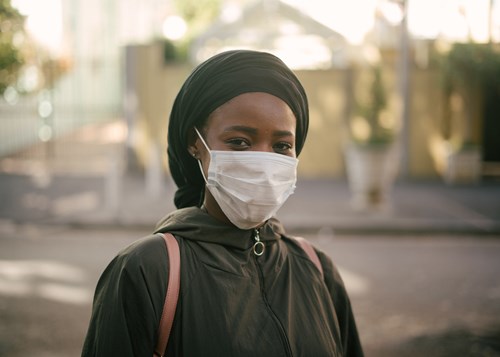A study from Sutter Health underscores the role race and ethnicity play in how individuals access care and the health outcomes caused by existing inequities.
The number of hospitalizations and deaths due to COVID-19 continue to rise across the country, but racial and ethnic minorities and socioeconomically disadvantaged groups are disproportionately impacted by the virus. To better understand these disparities in outcomes, Sutter Health, a northern California based health system, used their integrated electronic health record to analyze 1,052 confirmed cases of COVID-19 in Sacramento, California from January 1–April 8, 2020.
The study, included in the July issue of Health Affairs but published online in May, found Black Americans were 2.7 times more likely than white patients to be hospitalized for COVID-19, after adjustment for age, sex, underlying health conditions, and income. Sutter researchers attribute the disparities of outcomes to societal factors which result in barriers to timely access to care for Black Americans, causing a higher severity of illness by the time they seek medical care. In fact, the majority of Black Americans were tested for COVID-19 in hospitals, either in the emergency department or as inpatients.
“The experience of Sutter Health highlights the fact that race and ethnicity play a pivotal role in determining how and when care is accessed, and what the outcome is,” wrote the study authors, who were led by Sutter Health research scientist Kristen M.J. Azar, R.N., MSN/MPH.
Additional findings from Sutter Health researchers include:
- Among Black American patients with confirmed COVID-19 cases, 52.5 percent were hospitalized, compared to 25.7 percent of white patients.
- Increased odds of hospitalizations among Black Americans persisted despite adjustments made by researchers for underlying health conditions including Type 2 diabetes, congestive heart failure, hypertension, cardiovascular disease, chronic obstructive pulmonary disease, and asthma.
- A higher proportion of Black American patients (24.6 percent) were transferred to the ICU than white patients (10.7 percent).
- Overall, Black Americans with confirmed COVID-19 lived in ZIP codes with lower income compared to all other racial/ethnic groups.
Researchers also found the hospitalization rate among Black Americans is likely not due to a lack of insurance coverage, as there is a high level of insurance coverage among Black Americans in California due to support for the Affordable Care Act and expansion of Medicaid. Researchers did note, however, that insurance coverage does not guarantee access to primary care.
Structural inequities such as unconscious biases from providers and patients’ negative experiences with health care in the past encourage Black Americans to distrust medical care and therefore only seek it when necessary.
To address such inequities, researchers recommend policies that support community-based outreach, testing, and access to “culturally competent care” with Black American communities.
“The COVID-19 pandemic offers the opportunity to identify and quantify these inequities and to seek solutions,” the study authors concluded. “Health systems have an ethical obligation to ensure that all patients receive the right care at the right time, especially in times of crisis.”
